¿Qué significa "Kochira koso" en Japonés? HiNative
1. Dou Itashimashite - You're Welcome (formal) This is the standard reply that Japanese textbooks teach you to use when someone says "Arigato" or "Arigato gozaimasu". Dou itashimashite (どう致しまして or どういたしまして) means " You are welcome ", " Don't mention it ", " Not at all ", or " My pleasure ".

KOSO Our Creativity is Our Pride. Nihon KOSO has grown to now
Kochira koso yoroshiku onegaishimasu O ai dekite ureshii desu O ai dekite kouei desu O me ni kakate kouei desu Don't forget to bow! Common ways to say nice to meet you in Japanese Hajimemashite はじめまして Nice to meet you Hajimemashite, which can be written 初めまして or はじめまして, is the standard phrase that Japanese people say when they first meet someone.
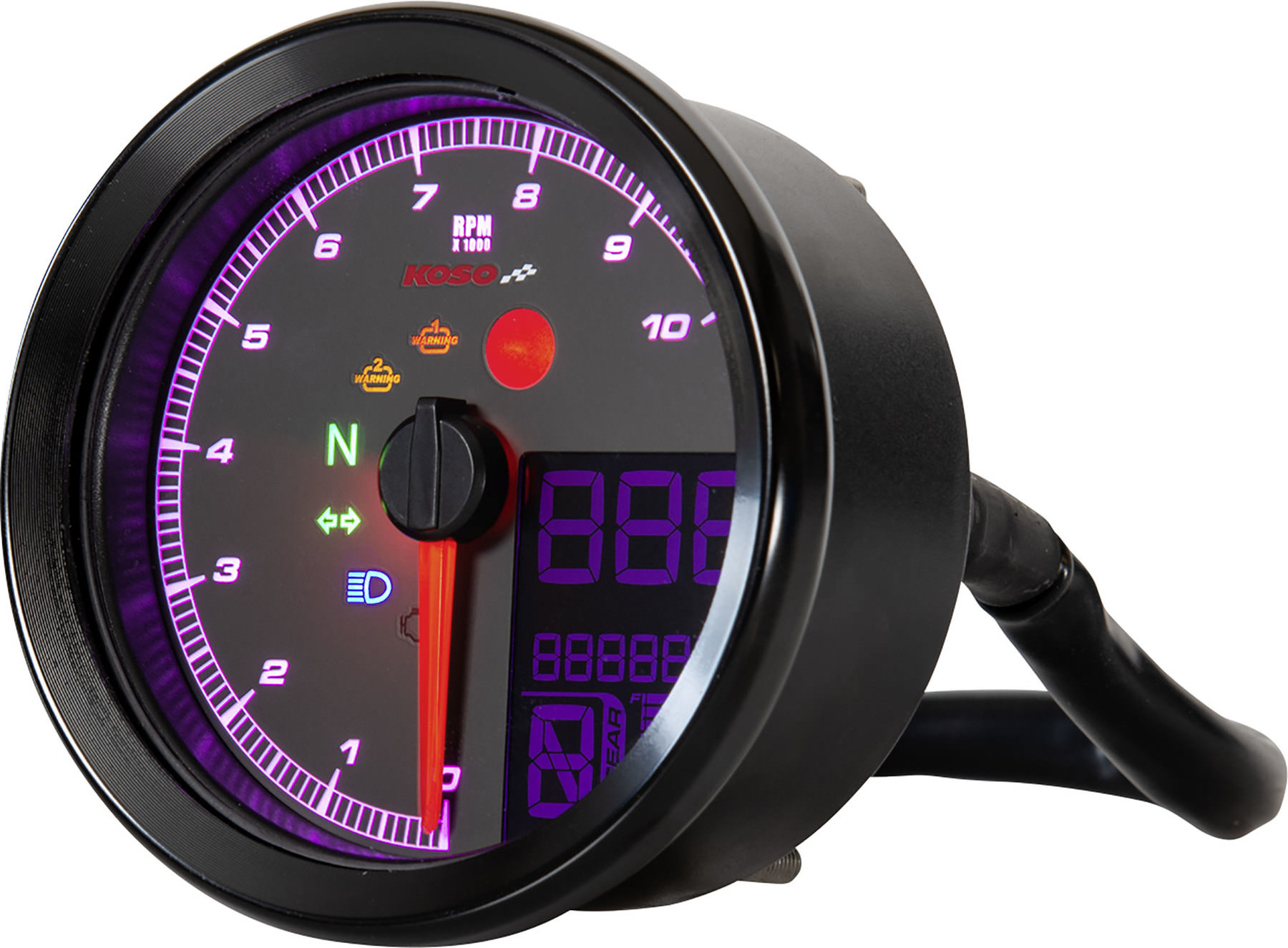
Koso KOSO TNT04 BLACK MULTIFUNCTION INSTRUMENT
You can simply say "kochira koso" (こちらこそ) or the longer form "kochira koso yoroshiku onegaishimasu" (こちらこそよろしくお願いします) This means something like "It's nice to meet you too" in this context.

Koso hosted at ImgBB — ImgBB
Kochira koso has a meaning of 'I should be the one thanking you' or politely saying 'right back at you!'. People often say Kochira koso arigatou gozaimasu, which translates to 'Thank you too' but the actual meaning is my pleasure. Tonde mo gozaimasen. とんでもございません. I feel sorry that you thanked me
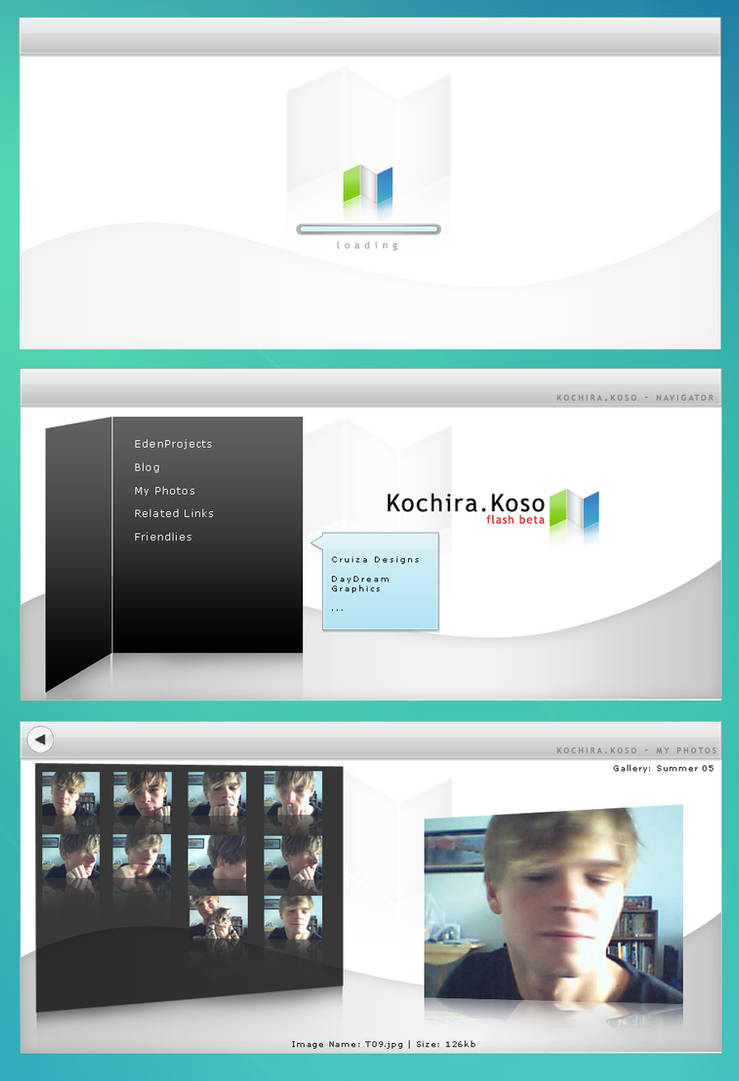
Kochira Koso Flash Beta Prev by edenprojects on DeviantArt
Native speakers say "kochira koso" to mean 'thank you, too', 'you, too', 'me, too', 'my pleasure, too', or such in Japanese. Perhaps, some Japanese learners know this phrase as it is sometimes used in Japanese conversations. In this blog post, however, I will explain it in detail based on its grammatical components.

R's KOSO Japanese Prebiotic Drink (474ml / 16oz) * 12 bottles
15. Kochira Koso Arigatou Gozaimasu (こちら こそ ありがとう ございます) Doitashimashite (どいたしまして) and Kochira (こちら こそ) Now that we have discussed all the ways to say thank you in Japanese, we need to know how to respond when someone says thank you. For example, we want to reply "You are welcome" which.

How to pronounce 'Kochira koso yoroshiku' (I am pleased to meet you
Search Meaning of kochira koso kochira koso What does kochira koso mean? kochira koso ( Japanese) Romanization kochira koso Romaji transcription of こちらこそ This is the meaning of こちらこそ: こちらこそ ( Japanese) Idiom こちらこそ ( hiragana , romaji ) ( used as a response) I'm the one that should really be saying that.

KoSo
こちらこそ (kochira koso) どうぞ よろしく おねがいします (douzo yoroshiku onegaishimasu) わたしはたなかです (watashi wa tanaka desu) The meanings are: The pleasure is all mine. I am pleased to meet you. (Literally the meaning for this sentence is "Please form good relations with me" or "Please take good care of me") My name is Tanaka.
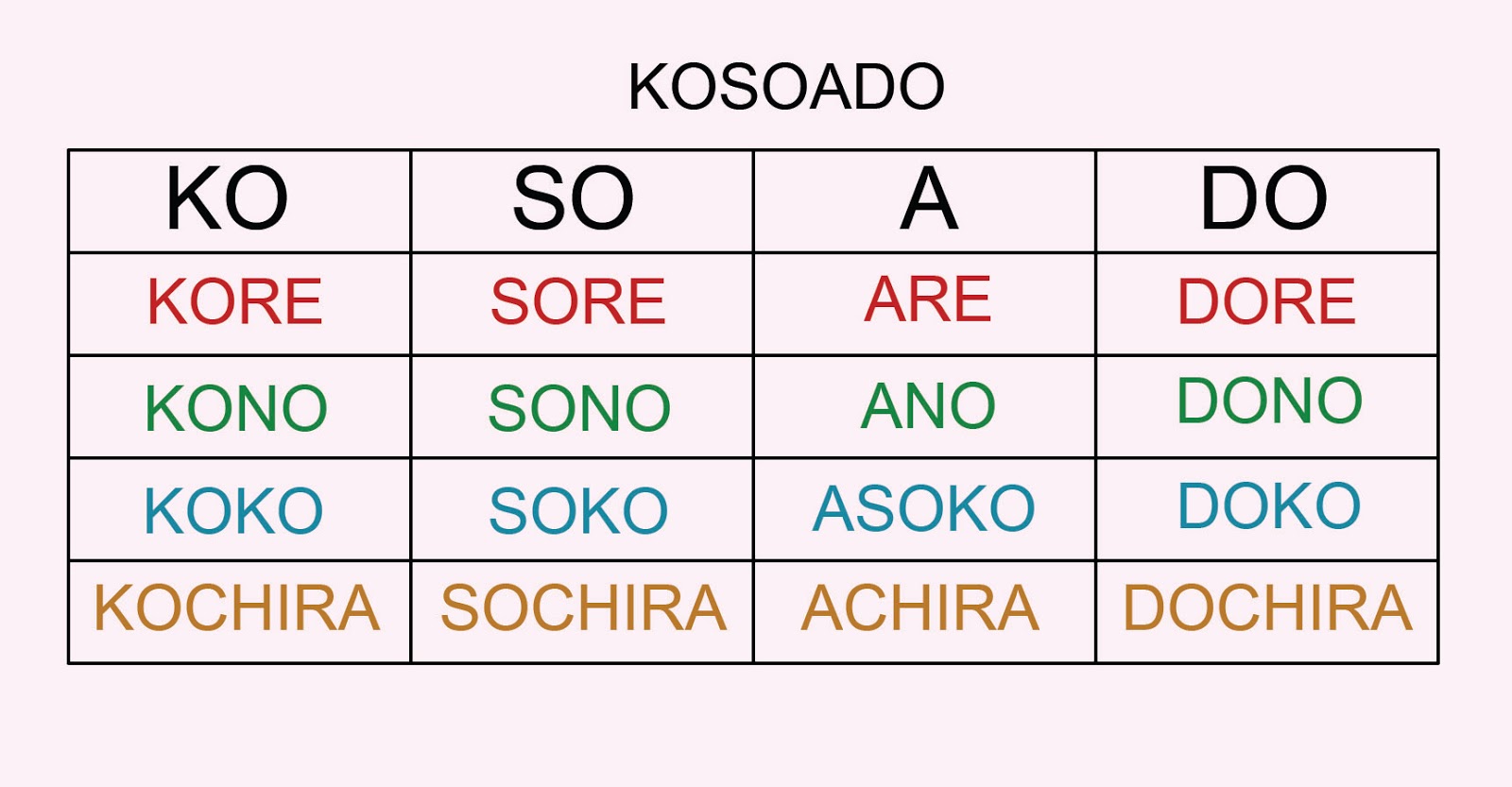
HIKARIU
you could add kochira koso / こちらこそ. in front of yoroshiku onegaishimasu. / よろしくおねがいします。 This magical kochira koso means, "I'm the one that should really be saying that. So, kochira koso yoroshiku onegai shimasu would basically mean, "I'm the one who should be askingyou for kindness." (笑) *lol*
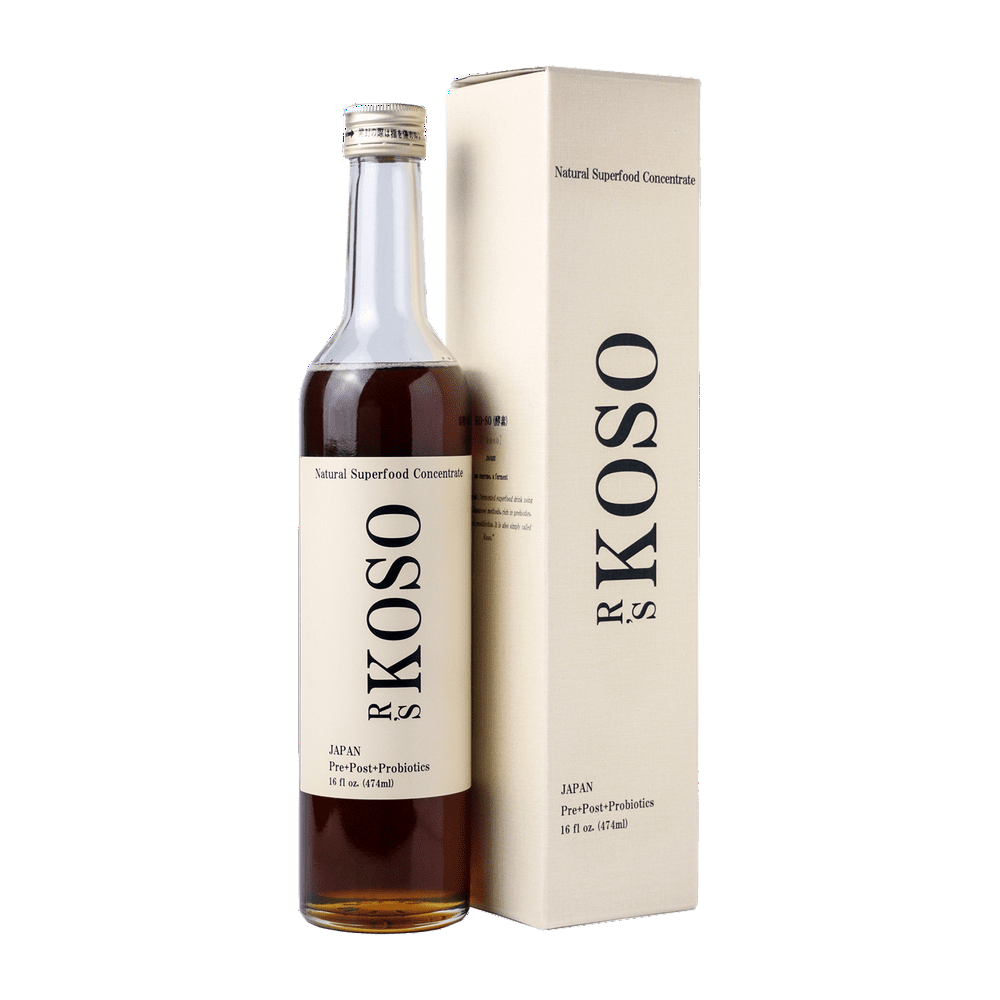
R's KOSO Japanese Postbiotic Drink (474ml / 16oz)
From introducing yourself to someone for the first time, to asking another person for a favour, the phrase yoroshiku onegaishimasu, よろしくお願いします is an essential part of Japanese language. You hear and use it everywhere, but it can be challenging to understand how to use "yoroshiku onegaishimasu", or if it needs to be used at all. Various meanings

Cómo se usa KOSO como en KOCHIRA KOSO JLPT N3 Curso NOKEN YouTube
Idiom. こちらこそ ( hiragana , romaji ) ( used as a response) I'm the one that should really be saying that. literally: this way, for sure; as in the thanks/apology should really be going this way (your way) A: 「 どうも ありがとう 。. 」 B: 「 こちらこそ 。. 」.

오네가이시마스 요로시쿠, 무슨 뜻인가요?
kochira koso sochira vs. achira dochira Means "Who" dochira-sama どちら様 kochira kara こちらから kochira de こちらで Indicating Choices dochira Means "Which" dochira vs. dore Kanji Directional Pronouns The literal meaning of kochira, sochira, achira and dochira refers to directions. kochira こちら This direction, toward me. This way, toward here.
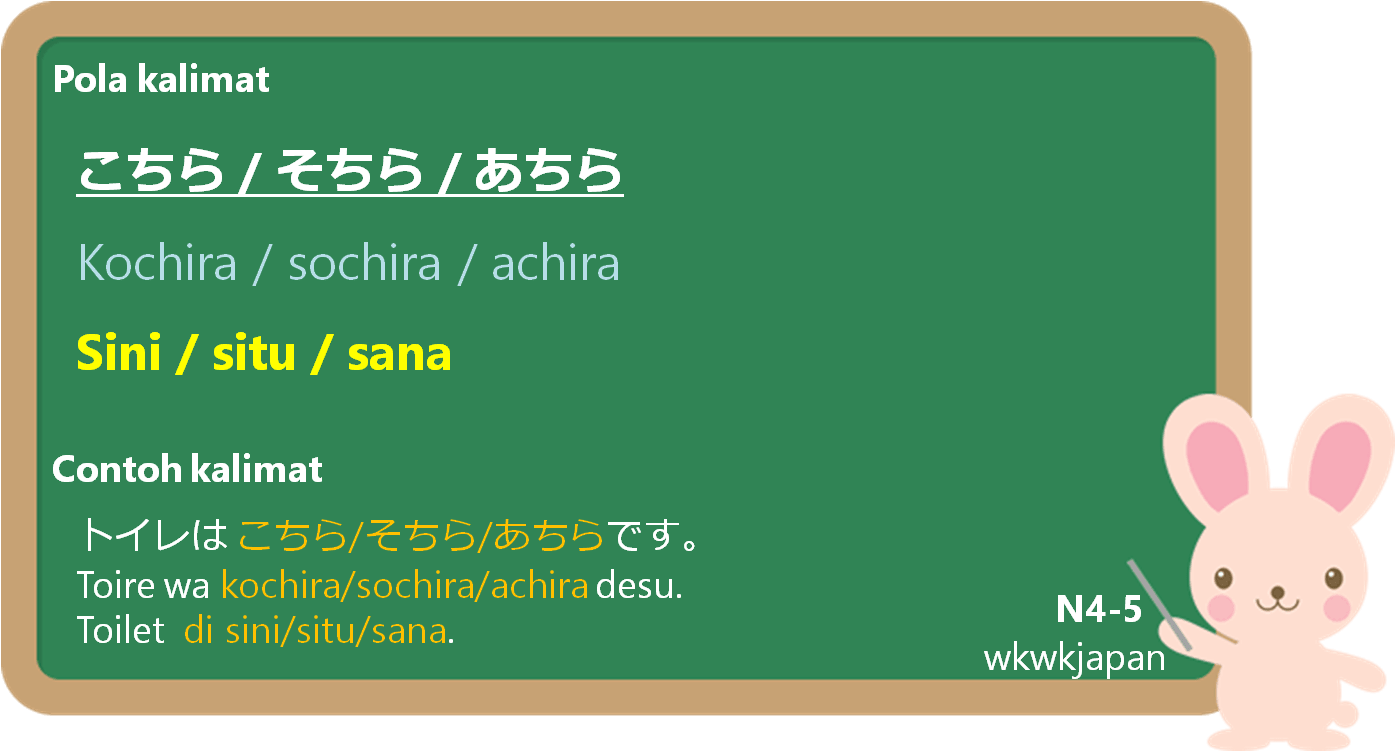
Kata Penunjuk Kochira, Sochira, dan Achira Belajar Bahasa Jepang
"こちら (Kochira)" refers to over here but can also be used to refer to me, Myself. "こそ (Koso)", refers to for sure and can be used to place emphasis on the preceding word. When the words are put together, it would mean "(Surely it should be me) It is I, who should say so" and can often be used when someone thanks you for.

All About Japanese Particles こそ (koso) Japanese Quizzes
Hiragana: こちらこそ. Katakana: コチラコソ. Romaji: kochira koso. English Meaning: Likewise!, (It's nice to meet) you too!, The pleasure is/was mine! Learn Japanese and other languages online with our audio flashcard system and various exercises, such as multiple choice tests, writing exercises, games and listening exercises.
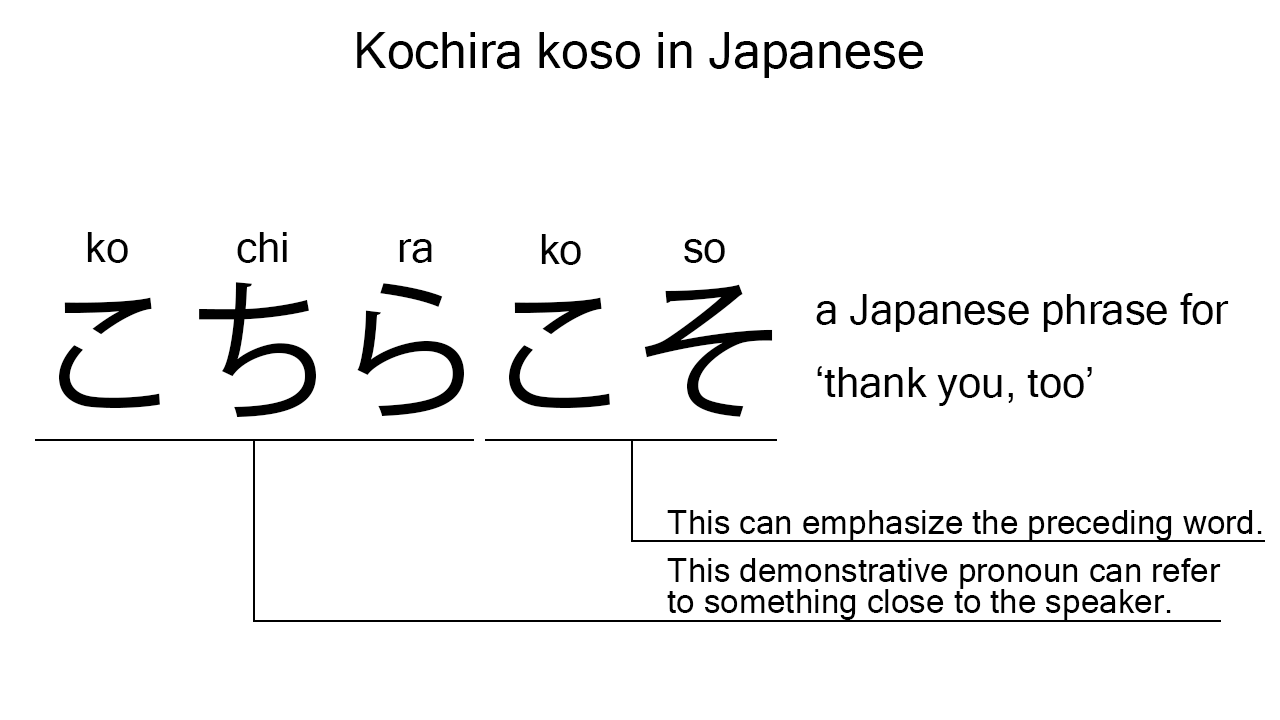
Kochira koso can mean 'thank you, too' in Japanese, explained
1. どういたしまして (Douitashimashite) If you've ever taken a Japanese class, this is probably the phrase that you learned. "どういたしまして" (Douitashi mashite) is translated most often to "y ou're welcome." It's a great phrase to use with your friends, family, and peers.

Usos de KOCHIRA KOSO こちらこそ JLPT N5 Curso NOKEN YouTube
29/11/2020 14/02/2021. よろしくおねがいします(Yoroshiku onegaishimasu)is probably the phrase that you learn at the very beginning of your Japanese study as self-introduction. Your teacher might tell you that よろしく means "nice to meet you", which is partly right. But when you carefully listen to Japanese people's.